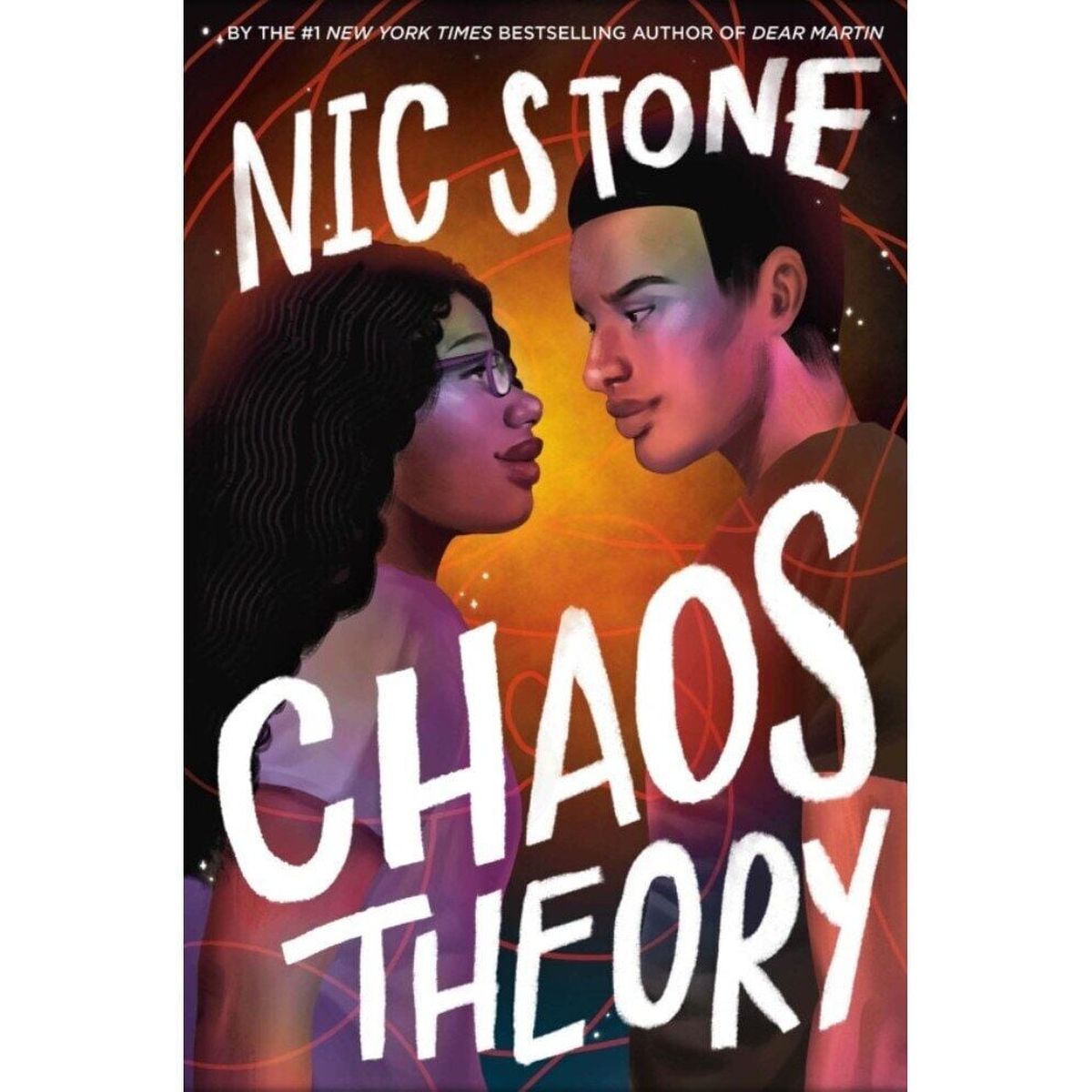Book review: Nic Stone humanizes mental health struggles in ‘Chaos Theory’

Nic Stone’s “Chaos Theory” is the perfect weekend read. Once you pick it up, it’s hard to put down, and you’ll get through it quickly – I know I did. Stone uses my favorite narrative tool, switching between the two protagonists each chapter, with brief interludes of text conversations, a common ploy when writing about teenagers.
Beyond being a fun read, Stone has a serious agenda: She’s addressing the stigma around “brain-based stuff” (mental health) and wants to get rid of such stigma. The book begins with a disclaimer, letting readers know that Stone will not be sugar-coating anything related to brain chemistry abnormalities, and that a lot of what she has written is based on her personal experiences.
The young adult novel opens with Shelbi, a senior in high school, receiving a wrong-number text from an inebriated stranger who’s trying to get in touch with his ex-girlfriend. Instead, he finds Shelbi, who becomes an anonymous emotional support person. The intoxicated stranger later turns out to be Andy, a guy who goes to Shelbi’s school. That night, Andy gets into a car accident, which Shelbi happens to drive by. Stone tries hard to show the readers what a geek Shelbi is – she analyzes the wreck as she passes it, figuring out where the car was going based on the tire tracks, the position of the crashed car and so forth. Shelbi also goes back to the scene the next day for further analysis and finds Andy’s wallet, leading to an awkward exchange at school when she returns it to him. Over the course of more bumbling meet cutes and still anonymous text conversations, Shelbi and Andy become friends.
In working to destigmatize mental health, Stone writes characters who aren’t simply their diagnoses. Shelbi is bipolar, and she talks with Andy about her episodes, hospitalizations and loss of friendships as a result of it. Andy is an alcoholic and struggles with his family and friends, finding kinship and support in Shelbi. The book sees a lot of development from Andy – admitting he is an alcoholic, going to AA meetings, working with his anger and sadness and guilt around his past. Shelbi, however, doesn’t seem to grow as much. The book starts with Shelbi already well-grounded in herself and ends with her still grounded in herself. Yes, she overcomes her fears of friendship and vulnerability, but other than that, readers don’t see much change in her. Which leaves me wondering, does a person need to change in order to develop?
I thoroughly enjoyed reading this book. I read almost all of it in a single day. While the mental health content Stone includes might be alarming to some, as she says, it is something we need to talk about. Plenty of us have “brain-based stuff,” and we won’t thrive with that stuff if we don’t talk about it with people. Readers see that with Shelbi and Andy, and you probably see that in your own life. Stone does well with her goal to address and destigmatize mental health and does it in a palatable and enjoyable manner.
I encourage you to read “Chaos Theory” and I especially encourage you to read Stone’s Author’s Note at the end and her mental health advocate agreement.
That is the meat of Stone’s purpose for this book – for people to treat everyone, including themselves, with dignity and respect, regardless of brain chemistry.
Sylvie Manz is a junior at Lewis and Clark High School.